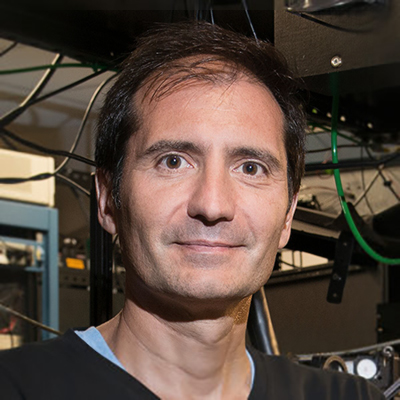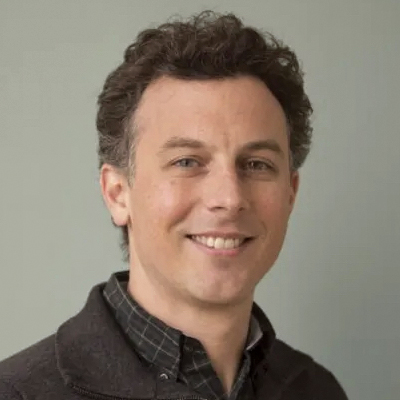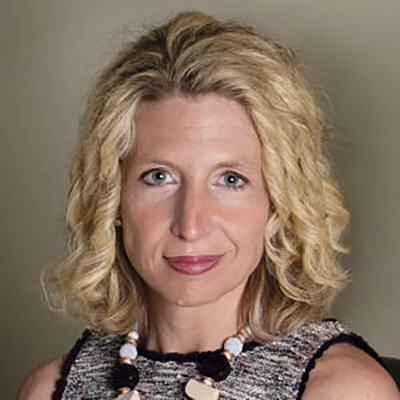OUR PEOPLE
Leadership
Beth Stevens, PhD
Principal Investigator, Conte Center
Associate Professor of Neurology, Harvard Medical School; Investigator, Howard Hughes Medical Institute; Associate Professor of Neurology, F. M. Kirby Neurobiology Center at Boston Children’s Hospital; and Institute Member, Broad Institute of MIT and Harvard
Beth Stevens received her PhD in Neuroscience in 2003 from the University of Maryland, College Park and completed her postdoctoral fellowship at the Stanford University School of Medicine in 2008 in the lab of Ben Barres where she studied the roles of glia and complement system in synaptic refinement. She is an institute member of the Broad Institute, an associate professor at Harvard Medical School, and a research associate in neurobiology at Boston Children’s Hospital.

Michael Carroll, PhD
Principal Investigator, Conte Center
Senior Investigator, Program in Cellular and Molecular Medicine at Boston Children’s Hospital; Professor of Pediatrics and Co-Director of Master of Medical Sciences in Immunology, Harvard Medical School

Bernardo Sabatini, MD PhD
Investigator, Conte Center
Alice and Rodman W. Moorhead III Professor of Neurobiology, Harvard Medical School
In the first few years of life, humans tremendously expand their behavioral repertoire and gain the ability to engage in complex, learned, and reward-driven actions. Similarly, within a few weeks after birth mice can perform sophisticated spatial navigation, forage independently for food, and engage in reward reinforcement learning.
The Sabatini lab seeks to uncover the mechanisms of synapse and circuit plasticity that permit new behaviors to be learned and refined. We are interested in the developmental changes that occur after birth that make learning possible as well as in the circuit changes that are triggered by the process of learning. Lastly, we examine how perturbations of these processes contribute to human neuropsychiatric disorders such as Tuberous Sclerosis Complex and Parkinson’s Disease.

Adam Granger, PhD
Investigator, Conte Center
Group Leader and Research Scientist, Broad Institute of MIT and Harvard
Adam Granger is a group leader and research scientist in the Stanley Center for Psychiatric Research of the Broad Institute of MIT and Harvard, where he studies the molecular, cellular, and circuit mechanisms underlying neuropsychiatric disorders. His group is developing high-throughput methods for characterizing local and long-range brain circuits to identify convergent changes caused by gene mutations implicated in schizophrenia and bipolar disorder.
Prior to joining the Stanley Center, Granger completed his postdoctoral training in the lab of Bernardo Sabatini at Harvard Medical School, studying the synaptic connectivity of multi-transmitter neurons. He earned his Ph.D. in neuroscience from University of California, San Francisco carrying out his thesis research on the molecular mechanisms of synaptic plasticity. He also holds a B.A. in biology and mathematics from Kalamazoo College.

Matthew Johnson, PhD
Investigator, Conte Center
Group Leader and Research Scientist, Broad Institute of MIT and Harvard
Center Administration

Krishna Narayanan, PhD
Scientific Coordinator, Conte Center
Project Manager, Boston Children’s Hospital and Broad Institute of MIT and Harvard
Krishna Narayanan completed his PhD at the University of Illinois Urbana-Champaign under the mentorship of Drs. Erik Procko and Diwakar Shukla. He worked on understanding the structure to function relationships of transmembrane proteins, using high-throughput mutagenesis libraries coupled with flow cytometry and deep sequencing. In 2023, he joined the Stevens lab as a Project Manager to help drive projects and collaborations toward success and assist in legal and regulatory compliance. As the Scientific Coordinator for the Conte Center, he works with the scientists to facilitate meetings, update the website, and plan the biannual symposium.
